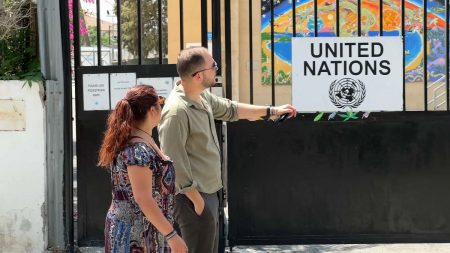The year 2024, marked by significant elections across the globe, witnessed a surge in disinformation campaigns, particularly impacting the European political landscape. The European Union, along with several member states, held elections, making the continent a prime target for manipulative narratives and false information. This surge underscored the critical need for robust counter-disinformation strategies, revealing a spectrum of preparedness among European nations. Expert analysis highlighted the Baltic states, Poland, and Sweden as being relatively well-equipped to combat disinformation, while Italy, Germany, and Romania emerged as more vulnerable. These disparities stemmed from a variety of factors, including existing media literacy programs, governmental policies, and the overall resilience of the information ecosystem within each country.
The effectiveness of disinformation campaigns often hinges on exploiting existing societal divisions and anxieties. In the 2024 European context, several key themes emerged as focal points for manipulation. These included anxieties surrounding migration, economic instability, and the ongoing war in Ukraine. Disinformation actors leveraged these sensitivities, crafting narratives designed to polarize public opinion and erode trust in established institutions. The tactics employed were diverse, ranging from the dissemination of fabricated news articles and manipulated images to the coordinated use of bot networks and troll farms to amplify specific messages and harass dissenting voices. The pervasiveness of social media platforms further exacerbated the spread of disinformation, providing fertile ground for rapid and widespread dissemination.
Among the countries identified as more vulnerable to disinformation, Italy, Germany, and Romania presented distinct challenges. Italy’s fragmented media landscape and the prevalence of hyper-partisan online communities created an environment conducive to the spread of false narratives. Germany, despite its robust media infrastructure, grappled with the challenge of disinformation targeting specific demographic groups, often exploiting pre-existing prejudices and anxieties. Romania faced similar issues, compounded by a relatively lower level of media literacy and a less developed fact-checking ecosystem. In contrast, the Baltic states, Poland, and Sweden benefited from proactive government initiatives, stronger media literacy programs, and a greater awareness of the threat posed by disinformation.
Analyzing the methods employed to spread disinformation in 2024, several key trends emerged. The use of sophisticated artificial intelligence (AI) tools became increasingly prevalent, enabling the creation of highly realistic deepfakes and the automated generation of misleading content. This posed a significant challenge for fact-checkers and media organizations, blurring the lines between genuine and fabricated information. Furthermore, disinformation campaigns increasingly adopted a more targeted approach, tailoring messages to specific audiences based on their online behavior and demographics. This micro-targeting strategy maximized the impact of disinformation by appealing to individual biases and anxieties, making it more difficult to detect and debunk.
Beyond the political ramifications, the spread of disinformation in 2024 also raised concerns about its impact on social cohesion and public trust. By eroding faith in credible sources of information and fostering polarization, disinformation campaigns threatened to undermine democratic processes and create a climate of distrust. This highlighted the need for a multi-faceted approach to combating disinformation, involving collaboration between governments, media organizations, tech platforms, and civil society groups. Promoting media literacy, supporting independent fact-checking initiatives, and enhancing the transparency of online political advertising were identified as crucial steps in tackling this growing challenge.
The 2024 elections served as a stark reminder of the evolving nature of disinformation and its potential to disrupt democratic processes. The varying levels of preparedness across European countries underscored the necessity for collaborative efforts and the sharing of best practices. As disinformation tactics become more sophisticated and pervasive, a continued focus on strengthening media literacy, fostering critical thinking, and building resilience against manipulative narratives will be essential in safeguarding the integrity of democratic societies. The ongoing development and implementation of effective counter-disinformation strategies remain a critical priority for governments, organizations, and individuals alike.














